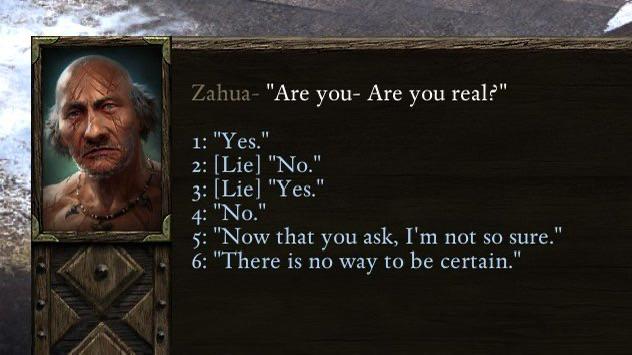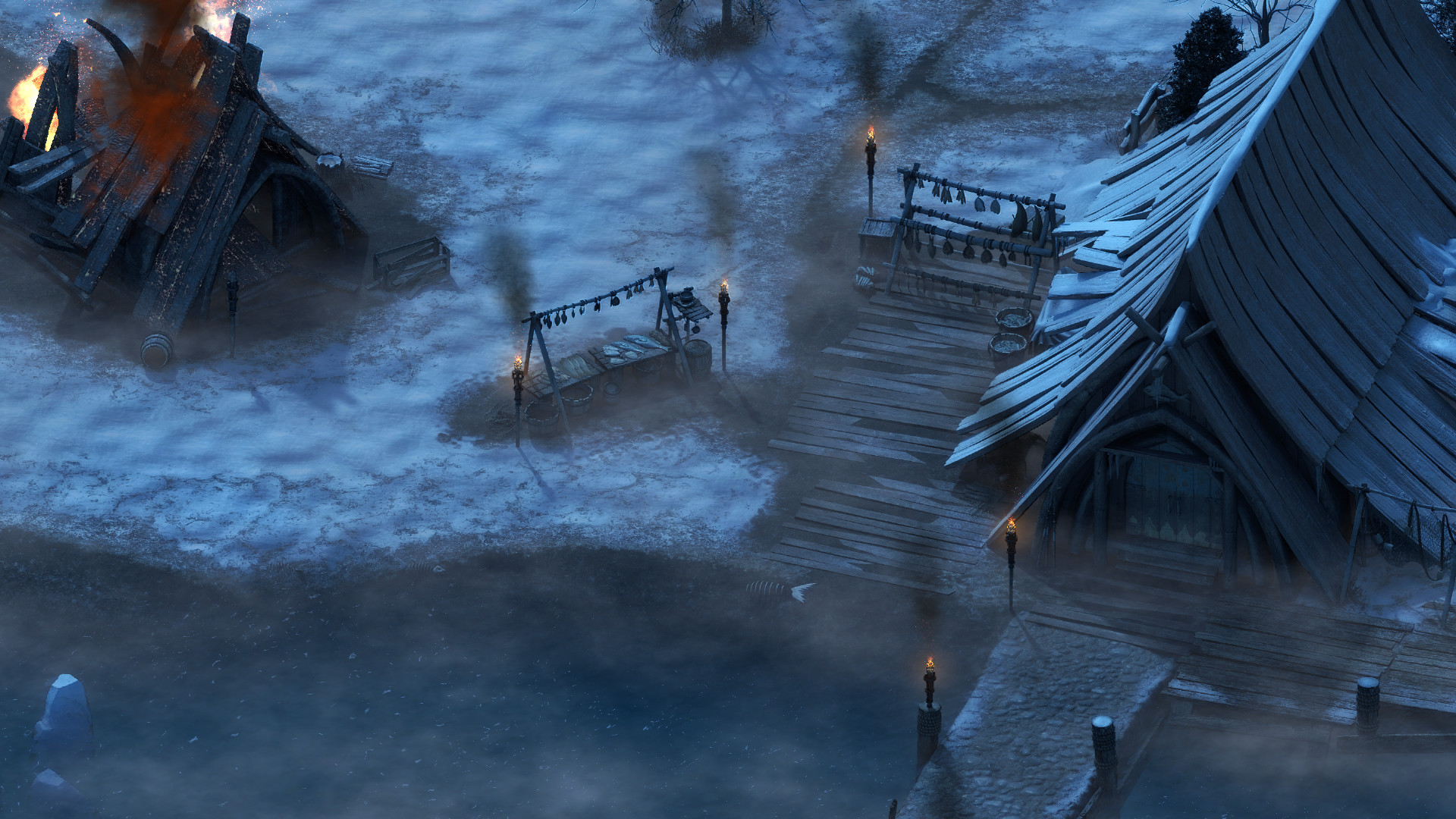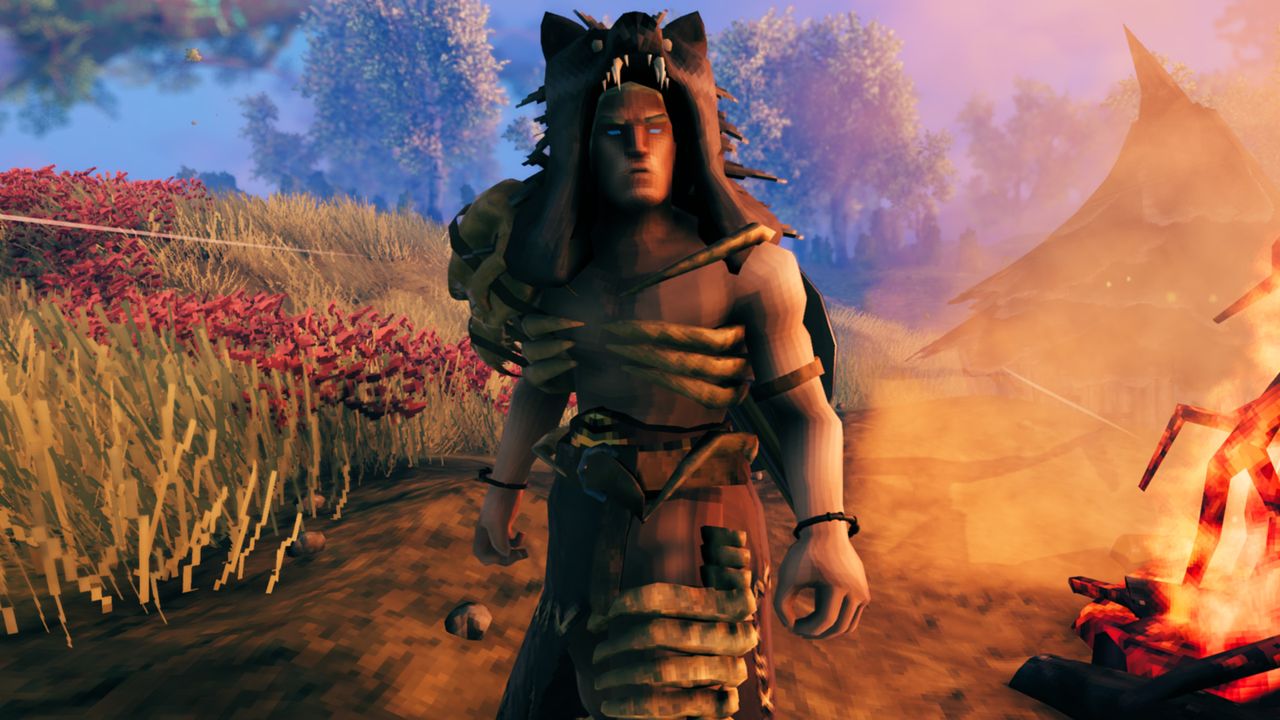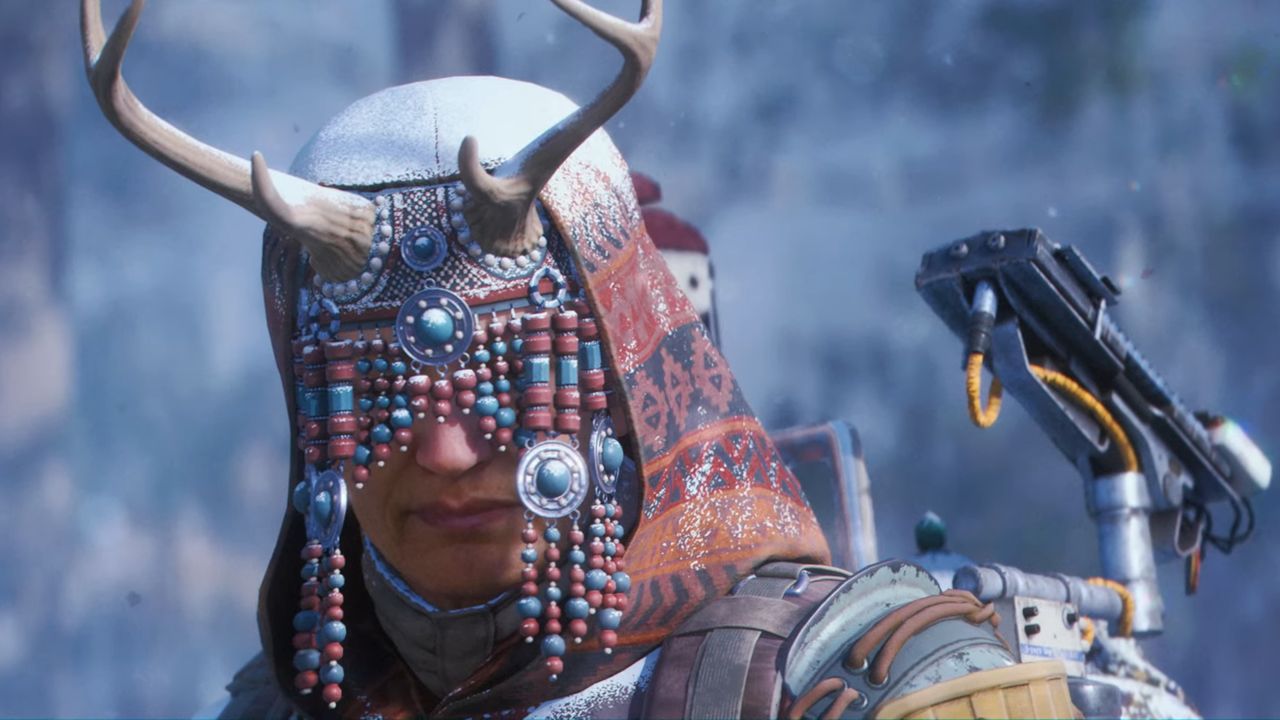I’ve been obsessed with a single dialogue choice in an underappreciated Obsidian game for 10 years, so I tracked down the guy who wrote it to learn everything about my favorite joke in RPG history

For ten years, I’ve been obsessed with a single dialogue choice (really a collection of choices) at the beginning of Pillars of Eternity’s first expansion, The White March: Part One.
Once you’ve finished beating back an ogre attack on the town of Stalwart, you’re free to poke around, meet the residents, accept side quests, all that classic RPG jazz. At the docks, interacting with a suspicious barrel of fish reveals there’s a man inside, and you can dump him out onto the street.
He is none other than Zahua, martial artist, ascetic, psychonaut, and a new DLC companion. Before revealing that he got in this barrel in search of true debasement of the self, a sensory deprivation tank plus exercise in combatting vanity, he has a characteristically trippy, befuddled, out-there question for the player: “Are you real?”
The potential answers gave me a primal, hooting belly laugh when I first saw them in 2015:
- “Yes.”
- “[Lie] No.”
- “[Lie] Yes.”
- “No.”
- “Now that you ask, I’m not so sure.”
- “There is no way to be certain.”
At the risk of explaining the joke too much, I love that it’s simultaneously a bit of a send-up of how Obsidian and old-school RPGs writ large do dialogue, while also being a great opportunity to roleplay your character. After much deliberation over the years, my favorite option is “[Lie] Yes”—it implies so much, including a certain existential angst, as well as a fear of being found out about it. “Ah shit, better make something up so people think I’m normal.”
Rather than just keep gushing about it, though, I decided to get in touch with the guy who wrote the line, as well as Zahua’s character as a whole, to get the skinny on how it came about. Enter former Obsidian writer, Eric Fenstermaker.
“[Nihilist] I knew it!”
Zahua the monk is an old, battered warrior from an extinct culture, one who combines the gravitas of a religious ascetic with the buffoonery of a stoner—I’ll be digging into Fenstermaker’s recollections on the character as a whole in a separate article. Part of Zahua’s warrior practice involves the ingestion of sacred hallucinogens, leading to his predicament when we first find him.
“I think it just came naturally out of how I’d decided to introduce the character,” Fenstermaker said. “I was looking at the map of the town he’s introduced in, Stalwart, and trying to figure out where I would place him, and this was a fishing village and there were market stalls and barrels. And I wanted to introduce him in a way that you could see immediately through his actions who he was. Sort of an icebreaker that would lead the conversation in a direction that revealed character.”
“So I thought, what if he’s practicing detachment from the material world by crouching down inside a barrel of fish for a few hours? And he’s old and perpetually under the influence, so what if he’s dozed off and he’s just waking up and he is so disoriented he has actually lost track of what is real?”
As for the variety of responses, Fenstermaker expressed that the last thing he wants to feel (or make another player feel) in an RPG is a sense of being railroaded. “If the NPC is allowed to reject reality,” said Fenstermaker, “shouldn’t the player also be allowed?”
He also pointed out how this exchange, however silly, manages to tie into one of the core themes of Pillars and now Avowed, an anxious “spiritual uncertainty” to avoid spoiling the plots of these games too much. “The question “Are you real?” though ridiculous in context, has real weight in this setting,” Fenstermaker said. “The answer isn’t necessarily as clear cut as it would seem at first blush.
“If I’m being honest though, I probably mostly did it because I thought it’d be funny.”
Something I always appreciated about the exchange was how it let you do so much roleplaying without demanding a lot of written and programmed reaction from the game. Zahua has a different response for each answer, but otherwise your choice doesn’t come up again. Fenstermaker does wish he could have invested a little more payoff into it, though, and while explaining his reasoning, cited what may be an even funnier dialogue line from the base game that I’d never seen before.
“In truth, I would have loved to find ways to add more reactivity, because I think building on that gag could’ve paid off even bigger, but the deadlines on that expansion were very tight.” He explained. “In the base game, one of my favorite bits of reactivity is that you can choose a backstory that more or less makes you a nihilist. And then very late in the game, when you learn a shocking bit of news with existential implications, one of the options is, ‘[Nihilist] I KNEW IT!'”
Now I desperately want to play Pillars of Eternity as a nihilist to see this one for myself. Reactivity aspirations aside, Fenstermaker still sees the value in offering players opportunities for more or less pure self-expression like the Zahua conversation.
“Much of the essence of RPG dialogue is allowing players to express their character, but ideally you also provide them with opportunities to discover things about their character they hadn’t even realized yet,” said Fenstermaker. “It won’t matter to everyone—some people don’t want to put in that kind of mental work, some people love RPGs for the combat and the more numerical side. But I think knowing that RPG players are so diverse in their reasons for playing, you want to do your best to reach everyone on their terms.”





